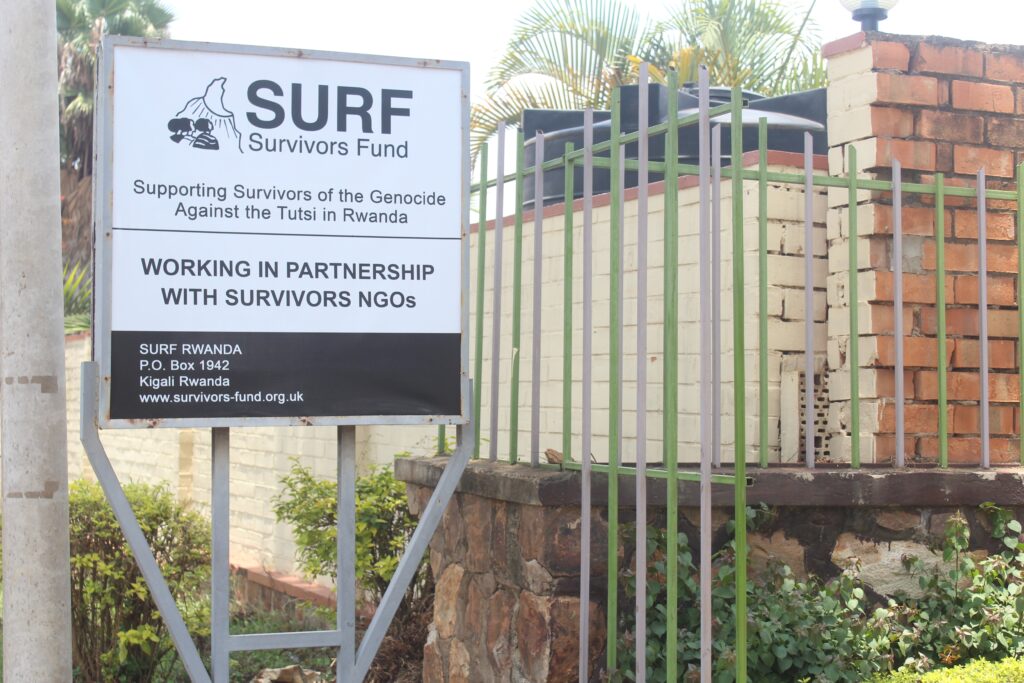
This is one of a series of extracts of questions and answers from An interview with Samuel Munderere and David Russell of Survivors Fund (SURF) on reparative justice for survivors of the 1994 Genocide against the Tutsi in Rwanda published in a Special Issue of Peace Review, a journal of social justice, to mark the 30th Anniversary of the Genocide against the Tutsi in Rwanda.
What is SURF’s vision of justice for genocide survivors and reparative justice in particular? How does SURF advance and realize this vision?
The vision of justice for Survivors of the Genocide against the Tutsi and reparative justice for Survivors Fund (SURF) is multifaceted. It encompasses not only legal accountability for perpetrators but also acknowledgment of survivors’ suffering, restoration of their dignity and rights, and the creation of supportive and inclusive communities. SURF aims to advance and realise this vision through various initiatives.
Firstly, SURF works to empower survivors by providing them with access to education, economic opportunities, and psychosocial support, enabling them to rebuild their lives and regain agency. Secondly, SURF advocates for justice and reparations on behalf of survivors, both domestically in Rwanda and internationally, by engaging with policymakers, legal institutions, and the broader community. Thirdly, SURF promotes commemoration and the recording of testimonies to ensure that the memory of the genocide is preserved, and the voices of survivors are heard. Finally, SURF fosters partnerships and collaborations with other organizations and stakeholders to maximize its impact and leverage resources for survivor support programs. Through these efforts, SURF contributes to the realisation of a vision of justice that is holistic, survivor-centred, and transformative.
